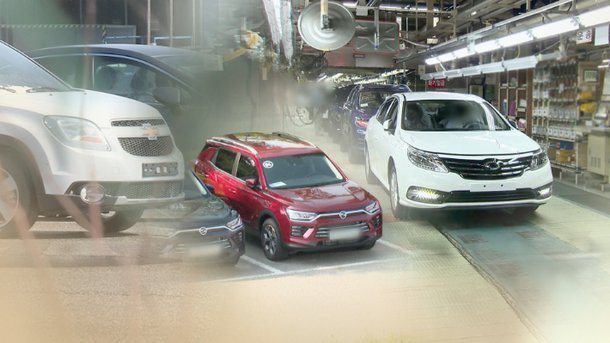 |
(Yonhap) |
A Korean carmakers’ association has sent a letter to the US House of Representatives, asking it to reject a legislative bill to offer tax incentives for US-made electric vehicles, arguing the proposed plan could unfairly disadvantage foreign carmakers and limit customer choice.
The Korea Automobile Manufacturers Association said Thursday the written letter, directed to House Speaker Nancy Pelosi and Rep. Richard Neal, concerns the $4,500 tax incentive plan for American electric vehicles proposed by labor groups.
“We request the house to delete the clause related to the tax incentives, which could discriminate between imported cars and US-made ones, and between EVs produced in factories without labor unions and EVs produced in ones with labor unions,” wrote Jeong Man-ki, president of the KAMA, in the letter.
A House panel last month approved the legislation to boost electric vehicle credits to up to $12,500 per vehicle, including $4,500 for US-made vehicles made by unions and $500 for US-made batteries.
If realized, the scheme would give disproportionate favors to General Motors, Ford and Stellantis, while weakening the price competitiveness of non-US brands, explained the KAMA.
“The legislation will reduce the number of EVs available in the US market, eventually limiting customer choices and contracting the EV market as a whole,” Jeong was quoted as saying by local media.
He added that discriminating against a company for not having a labor union is equal to discriminating against its workers and their family members.
In the letter, Jeong also argued the tax incentives plan goes against the Korea-US free trade agreement, which stipulates that “the two sides shall treat products produced from each other’s country equally.”
It could also be a violation of the World Trade Organization’s regulation that prohibits providing incentives that could “hinder or exclude” foreign-made products from entering the market.
Meanwhile, 12 foreign automakers -- including Hyundai Motor, Toyota Motor and Volkswagen -- jointly sent a letter Thursday asking the US House of Representatives to reject the proposal, according to international media outlets.
By Kang Jae-eun (
kang.jaeeun@heraldcorp.com)








